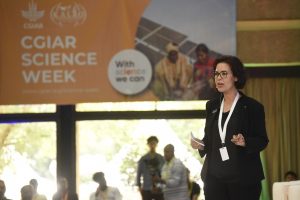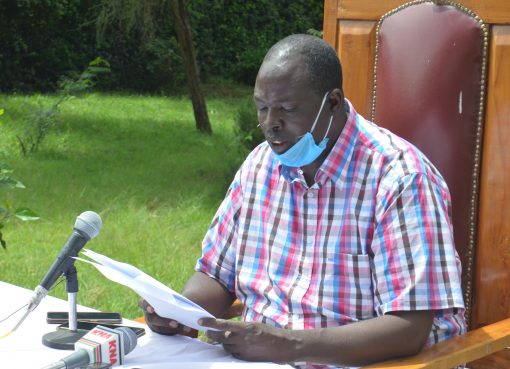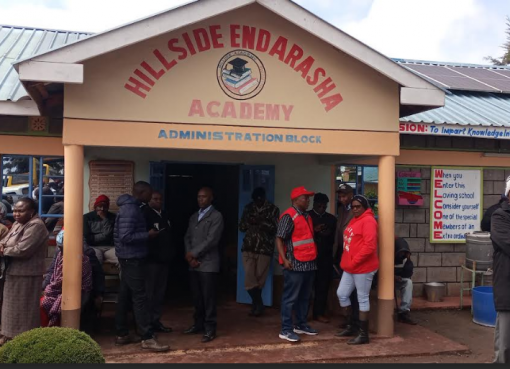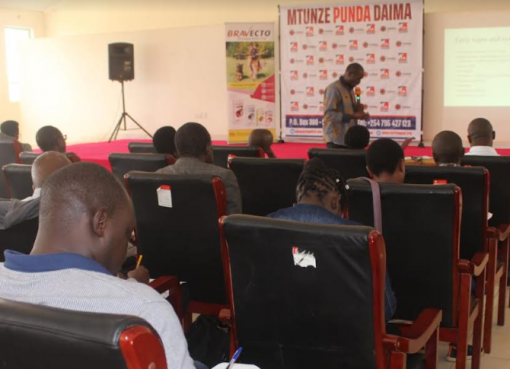Kenya has called on governments, researchers, private sector players and development partners to chart a new path for sustainable agriculture and resilient food systems in low- and middle-income countries.
Prime Cabinet Secretary Musalia Mudavadi has said Kenya, working together with partners and also local institutions, has already developed groundbreaking innovations geared towards transforming agriculture and also research.
Speaking when he officially opened a one-week Consultative Group on International Research (CGIAR) Science week at the United Nations campus, Nairobi, Mudavadi said the country was fully committed to supporting agricultural research and innovation.
“Our Bottom-Up Economic Transformation Agenda (BETA) prioritizes the agri-food system as a key pillar of economic transformation and transforming this sector will drive poverty reduction and job creation, improve livelihoods and food security, enhance gender equality and inclusion, and also address climate change adaptation and environmental sustainability,” he added.
The Prime Cabinet Secretary named Kenya’s Agricultural Sector Transformation and Growth Strategy and the Kenya Climate-Smart Agriculture Project as some of the key examples of initiatives aligned with the country’s Vision 2030 and the United Nations Sustainable Development Goals (SDGs), aimed at ensuring that no citizen goes to bed hungry.
He noted that through CGIAR, the state has significantly enhanced its research capacity with thousands of Kenyan researchers benefiting from world-class training programs, skills enhancement and access to advanced research facilities.
At the same time, he added that CGIAR scientists have gained contextual knowledge to enhance their research impact at scale.
“This Science Week is a defining moment. It gives us an opportunity to engage on how to mitigate the challenges that come about when addressing food security.
During this week, let us make decisions and transformative solutions that will help shape the future of food security in Kenya, Africa and the world at large,” Mudavadi added.
The task ahead, he said, demands deeper collaboration between governments and key stakeholders in the agricultural research ecosystem, including researchers, extension and advisory services providers, farmers, policy makers, the private sector and development partners.
CGIAR Managing Director Dr. Ismahane Elouafi said the world is faced by one of the biggest food shortage and food crisis in human history, with over 800 million people hungry and 350 million starving.
Elouafi cited malnutrition and hunger, emerging conflicts, and climate change that has been accelerating as some of the causes and specifically impact being much worse for vulnerable communities, especially women.
“Science is the hope; science is part of the solution; and science, technology and innovation, with the broad innovation spectrum—be it technology, policy, financial, institutional or societal innovation—is the solution,” she said.
The MD added that CGIAR has been working for over 5 decades now with small-scale producers in the global south, who are the most vulnerable to most of the crises yet producing 85 percent of food today and keeping the planet alive with technologies and solutions.
“In Kenya we have been working with the Kenya Agricultural Livestock and Research Organization (KALRO) and the National Systems, with a view to complementing each other and not duplicating programmes,” Dr. Elouafi said.
She noted that now there was now more recognition on the importance of the agri-food system and the importance of food, land and water systems through various declarations globally, as people who are talking about health, biodiversity, and climate change are also talking about agri-food systems.
“Partnership is very important. CGIAR has a footprint in more than 100 countries, but we don’t exist without our partners. Nonetheless, this partnership has to be evidence-based; it has to be data-driven and has to combine innovation on technology, policy, finance, market, society and institutions as well as focus on scaling for impact,” added the MD.
The director-General of the United Nations Office at Nairobi (UNON), Zainab Hawa Bangura, said the science week has brought together the brightest minds in agricultural research, science, and innovation, and this marks an extraordinary opportunity for participants to reflect on one shared commitment to science-driven solutions that address the most pressing challenges of our time.

“As you engage in this week of collaboration, knowledge exchange, and dialogue, be reminded of the critical role of CGIAR plays in advancing food security, improving livelihood and fostering sustainable agricultural practice globally,” she added.
Bangura noted that collective efforts to combat climate change, ensure food resilience and empower farmers and communities depend on the strength of the partnership built and the solutions developed together as a community and based on humanity.
“Whether through innovation, research, groundbreaking technologies, or field-tested solutions, there’s no doubt that agriculture has an important role to play in serving as a solution for both people and the planet,” said Bangura, while calling on participants to offer opportunities that will not only expand knowledge, but carry critical discussions and actions forward into the next era of agricultural science and sustainable processing.
The CGIAR science week will run for seven days under the theme, With Science We Can, and it is geared towards fostering mission-driven collaborations particularly through South-South cooperation, to ensure that agricultural advancements reach those who need them most, especially the marginalized and underserved farming communities.
By Wangari Ndirangu





